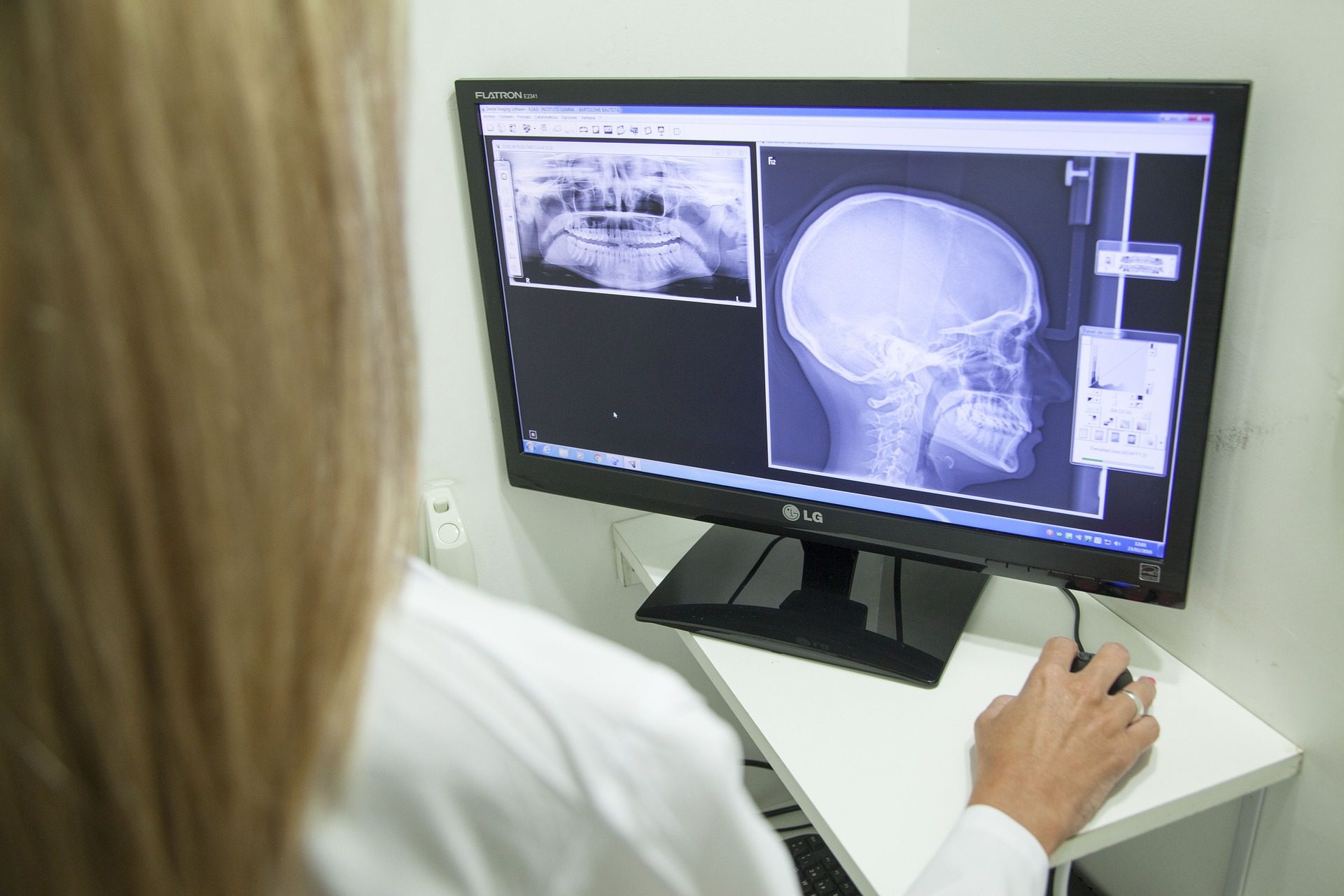There are a number of diseases of the jaw which can cause pain and oral health problems. During all check-ups and procedures, your dentist will be able to look for symptoms of any disease in your jaw bone and advise further on an appropriate course of treatment. Some diseases are preventable; therefore, your dentist can also advise on action to take to keep your jaw, teeth and mouth in good health should you have concerns.
Below are some of the most common diseases of the jaw, how they are contracted and what can be done to treat the condition.
Periodontitis (gum disease)
Periodontitis is a disease of the gums and the underlying bone, which causes pain, redness, swelling and bleeding. It is the leading cause of tooth loss and is often attributed to poor oral hygiene.
When regular and thorough brushing does not take place, layers of plaque build up on the tooth and harden around the gum line, creating tartar. This harmful bacterium can then infect the gums and cause a painful inflammation called Gingivitis. This infection can cause a periodontal pocket to form between the gum and the root of the tooth, which has the perfect conditions for harmful bacteria to develop and cause disease.
If left untreated, the spread of Gingivitis can lead to Periodontitis, and ultimately damage to the jaw bone and tooth loss. The risk of Periodontitis is greatly heightened for smokers and is also increased by other factors including stress and pre-existing diseases such as diabetes.
To help prevent Periodontitis, we recommend brushing thoroughly twice a day and using dental floss once a day to clean areas in between teeth that the toothbrush cannot penetrate. Regular check-ups at the dentist will also help to maintain good oral hygiene and routine cleaning can be carried out to remove plaque build-up or tartar.
Vitality’s expert hygienists provide cleaning treatments and advice on how to maintain good oral health, for more information visit our dedicated Hygienist information page.
Dental abscess
Caused by poor brushing and plaque build-up, a large amount of decay in a tooth can infect it and cause a pus-filled dental abscess in the jawbone, gums or teeth. Often very painful, an abscess should be treated by a dentist straight away to avoid the infection spreading to other areas of the mouth or body.
To treat an abscess, your dentist will sometimes drain the pus from the infected area and then carry out further treatment to address the cause of the problem; this may involve a root canal procedure or tooth extraction. It is uncommon for an abscess to be treated with antibiotics unless the infection has spread and is also affecting other areas.
Osteonecrosis
Osteonecrosis is a bone disease which occurs when there is a loss of blood supply to the bone, which is required to keep it healthy. In dental patients, Osteonecrosis is seen when the jaw bone has been exposed, commonly after a tooth extraction. As a result of the reduced blood flow, the jaw bone (osteo) begins to weaken and die (necrosis), which can be painful for the patient.
Only patients who have undergone radiotherapy to the head and neck, or are already taking anti-reabsorption medication (bisphosphonates) for other illnesses like osteoporosis are at risk. For this reason, it is important to inform your dentist if you are currently receiving treatment for any form of bisphosphonate medication or if you have ever received radiotherapy to the head and neck.
Osteonecrosis can be treated with antibiotics and your dentist will be able to provide further information.
Osteoporosis
To stay healthy, our bones cells dissolve and regenerate over time. Osteoporosis occurs when bones lose their cells more quickly than they can reproduce them and as a result bone density is greatly reduced. This poor density leaves the bone brittle, weak and prone breakage.
Some leading triggers for Osteoporosis are a lack of calcium or Vitamin D, ageing and the menopause. As a result, women are more likely to suffer from this particular condition.
Maintaining good bone health and sufficient Vitamin D and Calcium intake can aid prevention against this disease. Sufferers should make regular trips to the dentist to minimise any resulting oral health issues, such as tooth loss or movement.
Temporomandibular Disorder (TMD)
The temporomandibular joint is where your jaw connects to the rest of your skull. If this joint becomes injured it can lead to pain, discomfort and reduced movement of the jaw.
TMD can be caused by an injury such as a blow to the head, teeth grinding or a strain caused by an uneven bite. Although painful, TMD usually heals by itself and medication is not needed, other than perhaps painkillers. Eating soft foods and avoiding putting too much strain on the joint will aid recovery, but your dentist can advise you on the best treatment in your case.
Good oral hygiene and overall personal health is the best prevention for all types of jaw and oral diseases. At Vitality we recommend brushing twice a day, using dental floss once a day, eating a healthy balanced diet and undertaking regular exercise to prevent illnesses which can negatively impact the health of your mouth.
If you are suffering with pain and discomfort in your jaw, or believe that you have any of the diseases listed above then you should arrange an appointment with your dentist as soon as possible, who will assess your oral health and if necessary advise further on treatment procedures. Our expert team at Vitality Dental are always on hand to provide treatment, advice and support in maintaining great oral health and taking preventative measures to avoid disease.
Contact us today to arrange your next appointment and discuss any concerns you may have.


